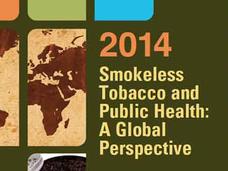Cancer Currents: An NCI Cancer Research Blog
A blog featuring news and research updates from the National Cancer Institute.
-
FDA Grants Palbociclib Accelerated Approval for Advanced Breast Cancer
Palbociclib (Ibrance) is approved to be used in combination with letrozole (Femara) to treat postmenopausal women with metastatic breast cancer.
-
Medicare to Cover Annual Lung Cancer Screening for Some Beneficiaries
For the first time, Medicare will cover the costs of lung cancer screening for some beneficiaries, the Centers for Medicare and Medicaid Services (CMS) announced on February 5.
-
Genome Study Yields Clues to Head and Neck Cancers
Researchers have surveyed the genetic changes in nearly 300 head and neck cancers, revealing some previously unknown alterations that may play a role in the disease, including in patients whose cancer is associated with the human papillomavirus (HPV).
-
Precision Medicine Initiative® and Cancer Research
Under the Precision Medicine Initiative, NCI is working to accelerate the pace of research that will help identify which treatments work best for which patients.
-
A Good Year: FDA Approved Nine New Cancer Drugs in 2014
In 2014, the Food and Drug Administration (FDA) approved 41 drugs that had not been approved previously for any indication, the most in nearly 20 years. Of these 41 novel drugs, 9 were approved for the treatment of cancer or cancer-related conditions.
-
Bacterial Biofilms Provide Clues into Colorectal Cancer Risk
A new study suggests that dense bacterial communities called biofilms may promote the development of some colorectal cancers.
-
Analyzing the Gut Microbiome to Help Detect Colorectal Cancer
New research suggests that identifying specific changes in the gut microbiome could potentially help screen patients for colorectal cancer.
-
Report Offers Comprehensive Look at Global Smokeless Tobacco Use
The first report of its kind finds that more than 300 million people worldwide use smokeless tobacco products and that they are linked to a number of cancers.
-
New on Cancer.gov: Resources on Melanoma Therapies
Several new resources that provide more details about the changing treatment landscape for advanced melanoma have recently been added to Cancer.gov.
-
Which Patients Will Benefit from Immunotherapy for Cancer? Some Hints Emerge
Researchers have identified a “genetic signature” in the tumors of patients with advanced melanoma who responded to a form of immunotherapy called checkpoint blockade. The results could be the basis for a test that identifies likely responders to this treatment as well as for developing new treatments.
-
Method for Identifying Combination Therapies to Combat Treatment Resistance Shows Promise
Researchers from the Massachusetts General Hospital Cancer Center in Boston have reported on a method for studying treatment resistance that may identify combinations of targeted therapies that can help to combat resistance in some patients.
-
Debate, Research on E-Cigarettes Continue
Since they first began to be sold in North America in the mid-2000s, electronic cigarettes have been the subject of intense debate. NCI's Dr. Michele Bloch recently presented an update on some of the issues surrounding e-cigarettes.
-
Building on Opportunities in Cancer Research: NCI’s Annual Plan and Budget Proposal for FY 2016
NCI’s Director, Dr. Harold Varmus, introduces the NCI Annual Plan and Budget Proposal for Fiscal Year 2016.
-
Human Papillomavirus (HPV) Vaccines: An Interview with Douglas R. Lowy, M.D.
NCI’s Dr. Doug Lowy discusses HPV vaccines, including their efficacy, safety, and the development of next-generation vaccines.














